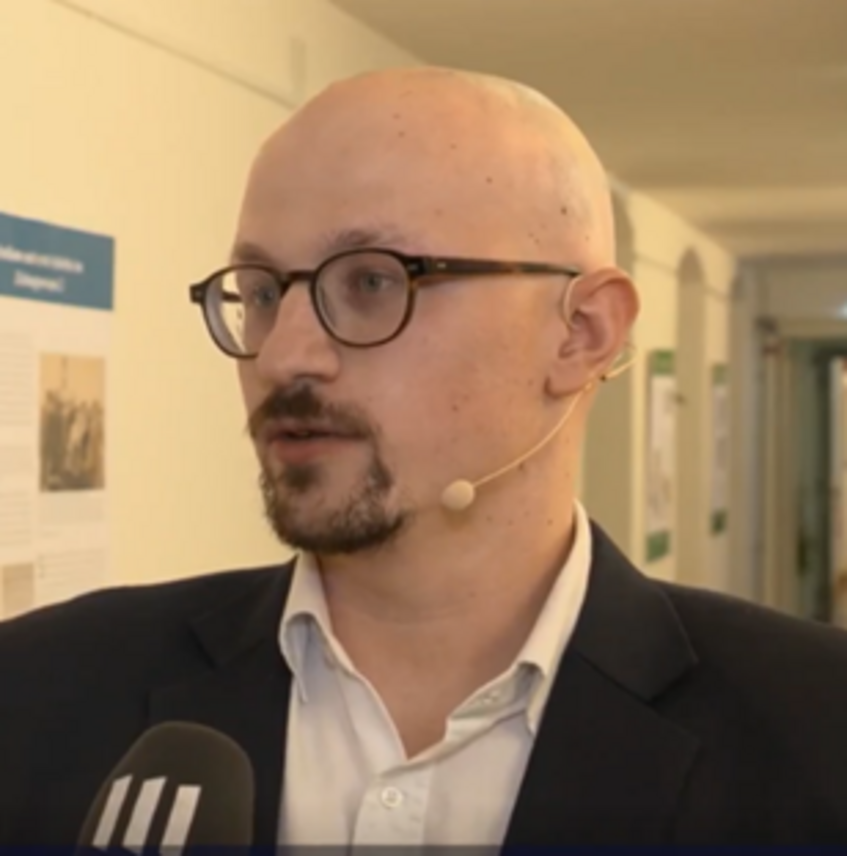
© ORF
Konstantin Schischka, B.Ed. B.A. MEd MA
Doctoral researcher (prae doc) with the ERC research group GLORE – “Global Resettlement Regimes: Ambivalent Lessons learned from the Postwar (1945-1951)”
Contact
Mail: konstantin.schischka@univie.ac.at
Links
• X/vormals Twitter
• Doctoral School
• ORCID
• Researchgate
• Blog GHR
Curriculum Vitae and list of publications
Konstantin Schischka studied History, Geography and Contemporary History and Media at the University of Vienna. Since 2020, he has been working as a research assistant at various research institutions on various historical projects, with a strong methodological focus on approaches from the digital humanities or public history. Since 2023, he has been a project collaborator and doctoral researcher in the ERC project GLORE in the team of Prof. Dr. Kerstin von Lingen and is working on his dissertation with the working title: Mapping the Spatial and Social-Administrative Networks of Resettlement: The Role of Hubs of Displacement in the Resettlement Process of 'The Last Million'. At the same time, he is involved in various projects as a consultant for the use of methods from the Digital Humanities.
Current Research Project: In the aftermath of World War II, as well as in the present day, migration patterns of Displaced-People are decisively shaped by spaces of violence-induced and administered migration. In this context, central places where spatial uprooting is caused and negotiated, referred to as 'Hubs of Displacement', take on a significant role as nodes of migration networks. The resettlement process overseen by the International Refugee Organization (IRO) of the 'Last Million' Displaced-People, who could not be repatriated to their place of origin for various reasons, is characterized by diverse motives, structures and actors. The aim of this research project is to make social-administrative and spatial networks of this resettlement process visible and to analyze them using methods derived from Social Network Research and Geoinformation Systems. For this purpose, a sample of DPs will be processed in a relational database, focusing on their demographic composition and migration history. This approach makes it possible to analyze the effect of resettlement policies on different demographic subgroups in a nuanced manner and in relation to each other. Additionally, the research aims to examine the social-administrative relations between origin and destination stations and hubs of displacement in the migration network of selected DPs. By analyzing these aspects, the research aims to attain a deeper understanding of the dynamics and structures of the spatial and social-administrative networks of the IRO-administered resettlement process.
Research interests
- Digital Humanities
- Spatial History
- HGIS
- Historical Network Analysis
- Migration History
- Social- and Economic History
- Cultural History
- Public History
Recent:
Die "stille Arisierung" vor den Nazis
US-Umerziehung und Zeitungskultur (Interview Beitrag)
Die "Lange" Geschichte der Wiener Secession.
